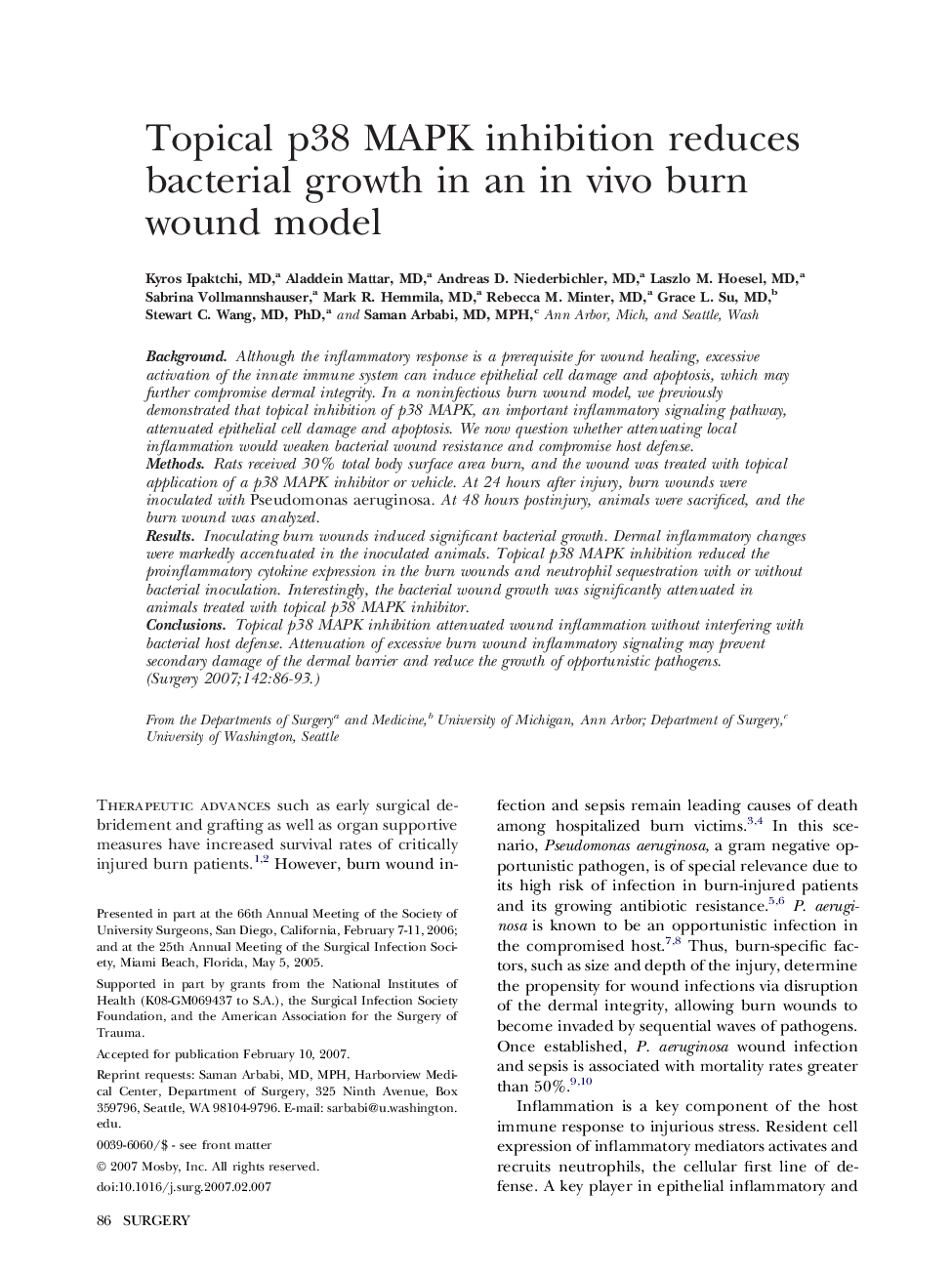| Article ID | Journal | Published Year | Pages | File Type |
|---|---|---|---|---|
| 4309946 | Surgery | 2007 | 8 Pages |
BackgroundAlthough the inflammatory response is a prerequisite for wound healing, excessive activation of the innate immune system can induce epithelial cell damage and apoptosis, which may further compromise dermal integrity. In a noninfectious burn wound model, we previously demonstrated that topical inhibition of p38 MAPK, an important inflammatory signaling pathway, attenuated epithelial cell damage and apoptosis. We now question whether attenuating local inflammation would weaken bacterial wound resistance and compromise host defense.MethodsRats received 30% total body surface area burn, and the wound was treated with topical application of a p38 MAPK inhibitor or vehicle. At 24 hours after injury, burn wounds were inoculated with Pseudomonas aeruginosa. At 48 hours postinjury, animals were sacrificed, and the burn wound was analyzed.ResultsInoculating burn wounds induced significant bacterial growth. Dermal inflammatory changes were markedly accentuated in the inoculated animals. Topical p38 MAPK inhibition reduced the proinflammatory cytokine expression in the burn wounds and neutrophil sequestration with or without bacterial inoculation. Interestingly, the bacterial wound growth was significantly attenuated in animals treated with topical p38 MAPK inhibitor.ConclusionsTopical p38 MAPK inhibition attenuated wound inflammation without interfering with bacterial host defense. Attenuation of excessive burn wound inflammatory signaling may prevent secondary damage of the dermal barrier and reduce the growth of opportunistic pathogens.
